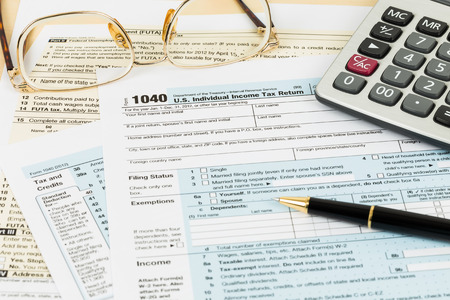 When the chatter was at its peak on the 2018 tax law changes being proposed, one of the big areas of concern for homeowners was the elimination of the mortgage interest deduction. Right behind that issue was a similar treatment with regards to property tax deductions.
When the chatter was at its peak on the 2018 tax law changes being proposed, one of the big areas of concern for homeowners was the elimination of the mortgage interest deduction. Right behind that issue was a similar treatment with regards to property tax deductions.
As the rumors swirled and Congress moved, many feared both deductions had finally met their day and were going to be entirely eliminated, resulting in a major financial hit that many homeowners and particularly those in high real estate cost states would have felt painfully. As it turned out, there’s no reason to panic or suddenly dump titled real estate just because it has been bought with a mortgage.
Yes, both issues were impacted by the 2018 tax law changes, but neither the mortgage interest deduction nor the property tax deduction were eliminated entirely. Instead, they were modified.
The changes include:
- Mortgage interest deduction – the new laws cap the eligible debt to $750,000. While old loans originated prior to the law change date are still eligible up to $1 million, new mortgages created after the enactment date are caught in the lower universe. However, being realistic, most homebuyers are not in the bracket that afford a $750,000 plus priced home except maybe in a few communities such as New York City or the San Francisco/Bay Area in California. So the change basically means business as usual for 9 out of 10 homeowners in the U.S.
- Real estate property taxes – total state and local taxes eligible for deduction are now capped at $10,000. This is where some homeowners could feel a pinch as a typical home in higher cost states easily generates property tax levels of $5,000 to $7,000 for a $300,000 home. So those units assessed a higher value by tax auditors will likely feel this new limitation take effect.
- The standard deduction increase – remember, the above items are only useful to the extent that a tax filer itemizes his deductions. With a standard deduction now at $12,000 for an individual and $24,000 for a married couple, filing jointly, the option to itemize could go away entirely if the standard deduction provides a higher level of tax savings overall. And then that makes the above two deductions entirely moot and useless. Of course, it’s not entirely a plus since the personal exemption is also eliminated, thus reducing the benefit of the higher standard deduction by as much as $4,150 per person. In essence, the change is a wash, but could be enough to bar use of itemization, which would hurt greatly.
So the changes did not wipe out any benefit entirely (except the personal exemption). Instead, the real impact depends on which change applies to a specific taxfiler’s situation.
This is why two homeowners in the same town with the same house and market value could end up having very different tax results with the 2018 changes. Because there is so much variance.
As always, work with a trusted tax professional in order to understand how these changes will affect your personal tax situation.
 When you are a homeowner looking to reduce your carbon footprint, there are a number of steps you can take to make your home earth-friendly. From passive solar heating to solar panels, you can make a difference in the impact your home has on the environment.
When you are a homeowner looking to reduce your carbon footprint, there are a number of steps you can take to make your home earth-friendly. From passive solar heating to solar panels, you can make a difference in the impact your home has on the environment. Owning a home is important to military veterans just like the majority of other consumers. The Veteran’s Administration has provided an exceptional benefit for those who have served (or are currently serving) in any of the armed forces. And this VA Loan Program is helping thousands of service members achieve the goal of home ownership.
Owning a home is important to military veterans just like the majority of other consumers. The Veteran’s Administration has provided an exceptional benefit for those who have served (or are currently serving) in any of the armed forces. And this VA Loan Program is helping thousands of service members achieve the goal of home ownership. When you are purchasing a home, your lender may recommend you obtain a mortgage pre-approval before you find the home of your dreams. There are some benefits to being pre-approved before you find a home, but oftentimes, people confuse pre-qualifications with pre-approvals.
When you are purchasing a home, your lender may recommend you obtain a mortgage pre-approval before you find the home of your dreams. There are some benefits to being pre-approved before you find a home, but oftentimes, people confuse pre-qualifications with pre-approvals. Several generations ago, lenders required home buyers to have a 20 percent down payment in order to get a mortgage. While there were a few options out there for people who couldn’t save this substantial amount, the reality was that for the majority of people, the 20 percent down was a requirement.
Several generations ago, lenders required home buyers to have a 20 percent down payment in order to get a mortgage. While there were a few options out there for people who couldn’t save this substantial amount, the reality was that for the majority of people, the 20 percent down was a requirement. Like credit cards or car loans, some mortgages allow borrowers to have co-signers on the loan with them, enhancing their application. However, a co-signer on a mortgage loan doesn’t have the same impact that it might on another loan. Furthermore, it poses serious drawbacks for the co-signer.
Like credit cards or car loans, some mortgages allow borrowers to have co-signers on the loan with them, enhancing their application. However, a co-signer on a mortgage loan doesn’t have the same impact that it might on another loan. Furthermore, it poses serious drawbacks for the co-signer. Often times, home buyers can be disappointed when they find their dream home only to discover they are not able to get a mortgage to purchase the property. There are methods that potential buyers can use to ensure this does not happen to them.
Often times, home buyers can be disappointed when they find their dream home only to discover they are not able to get a mortgage to purchase the property. There are methods that potential buyers can use to ensure this does not happen to them. When you are considering purchasing a home , understanding the lending guidelines regarding a down payment is important.
When you are considering purchasing a home , understanding the lending guidelines regarding a down payment is important. 
 The economy seems to be heating up rapidly, but home loan interest rates are still at historically low levels. Real estate values have climbed a bit across the country, but low interest rates and affordable prices makes for an excellent opportunity for new homeowners to get into their first home before it rates and prices rise higher.
The economy seems to be heating up rapidly, but home loan interest rates are still at historically low levels. Real estate values have climbed a bit across the country, but low interest rates and affordable prices makes for an excellent opportunity for new homeowners to get into their first home before it rates and prices rise higher.